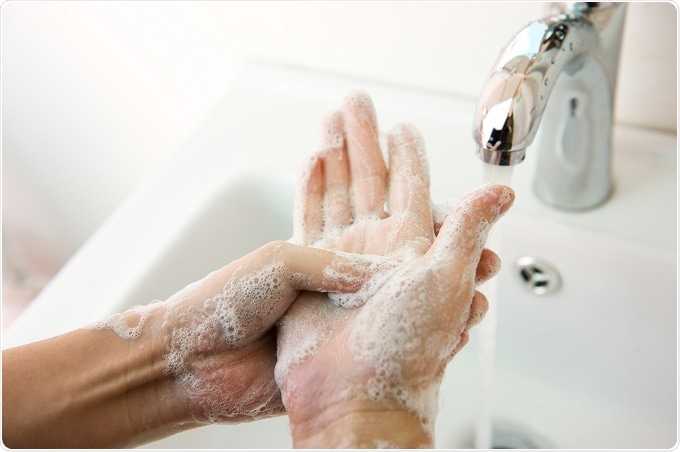Jun 1 2017
We all are aware that washing our hands can help us in preventing the spread of germs and getting ill. According to a new study by Rutgers-New Brunswick published in the June issue of the Journal of Food Protection, cool water removes the same amount of harmful bacteria as that of hot water.

Credit: hxdbzxy/Shutterstock.com
Donald Schaffner, distinguished professor and extension specialist in food science said: "People need to feel comfortable when they are washing their hands but as far as effectiveness, this study shows us that the temperature of the water used didn't matter."
In the study with 21 participants, high levels of a harmless bacteria were put on their hands multiple times over a six-month period before they were asked to wash their hands in 60°F, 79°F, or 100°F water temperatures using soap of 0.5 ml, 1 ml, or 2 ml.
"This study may have significant implications towards water energy, since using cold water saves more energy than warm or hot water," said Schaffner. "Also we learned even washing for 10 seconds significantly removed bacteria from the hands."
The coauthor Jim Arbogast, Vice President of Hygiene Sciences and Public Health Advancements for GOJO, said more work needs to be carried out to understand exactly the amount and the type of soap that is needed to remove harmful microbes, though the study does not indicate any differences between the amount of soap used.
This is important because the biggest public health need is to increase handwashing or hand sanitizing by foodservice workers and the public before eating, preparing food and after using the restroom."
Jim Arbogast, Vice President of Hygiene Sciences and Public Health Advancements for GOJO
These findings are significant for the U.S. Food and Drug Administration, which issues guidelines to states once in every four years. At present the guidelines suggest that plumbing systems at restaurants and food establishments should deliver water at 100° Fahrenheit for washing hands.
He further explained that with no sufficient science to support any suggestion for changing the guideline policy or for providing proof that the temperature of the water makes a difference, the issue of water temperature issue has been under discussion for years.
Instead of having a temperature requirement, the policy should only say that comfortable or warm water needs to be delivered. We are wasting energy to heat water to a level that is not necessary."
Donald Schaffner, professor and extension specialist in food science, Rutgers university